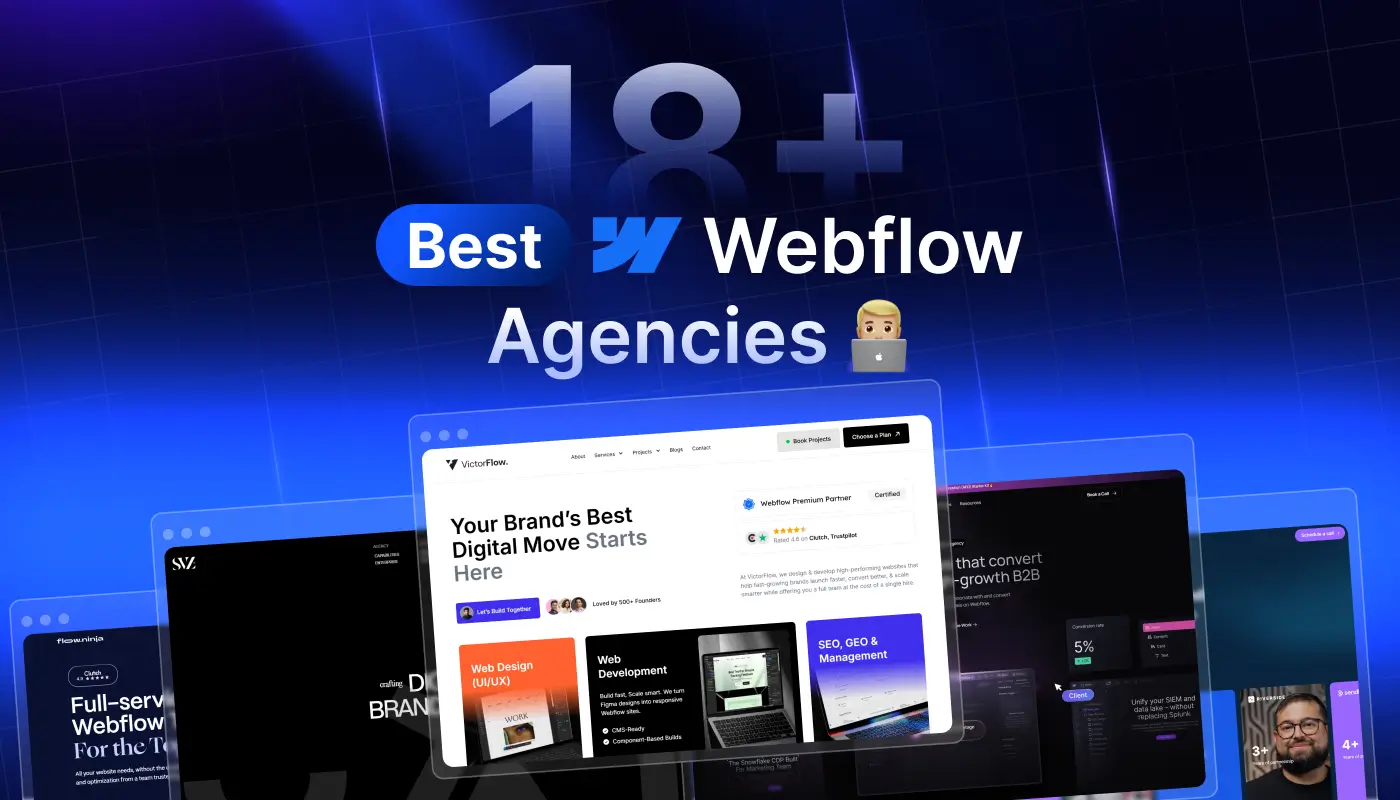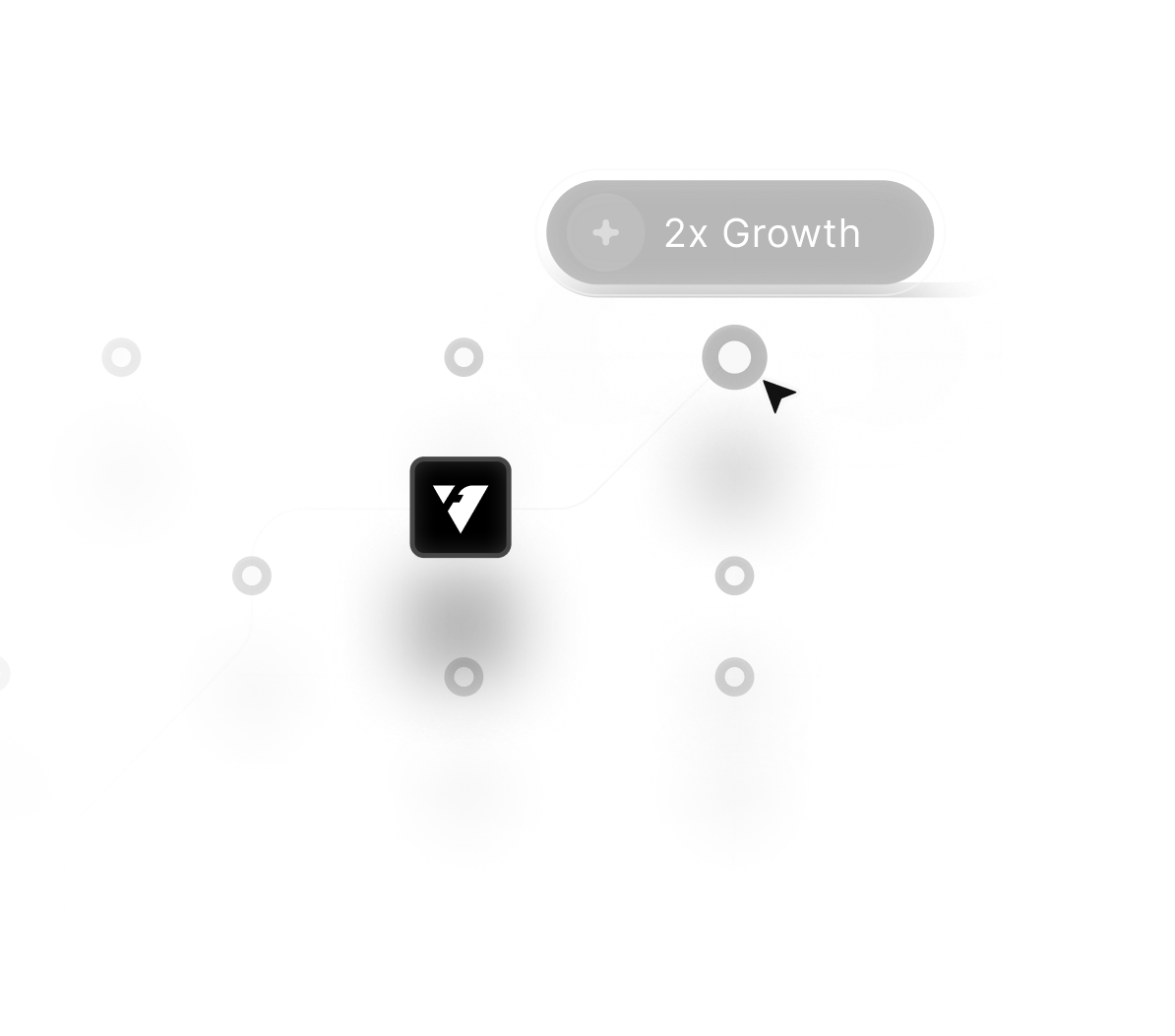November 18, 2025
Is Webflow Really Better Than WordPress? Here’s Why It Might Be

Understanding whether Webflow surpasses WordPress depends on how you value design freedom, speed, and maintenance requirements across long-term website growth.
Many teams discover that modern website expectations require tools capable of delivering clean visual control without relying on unstable third-party plugins.
Webflow attracts creators who want design accuracy because it mirrors front-end code visually while keeping output clean and efficient. WordPress continues to offer flexibility, yet its reliance on plugins often introduces performance issues, security risks, and inconsistent user experiences.
Strong hosting, integrated design tools, and CMS consistency make Webflow appealing for brands wanting reliable site management without constant patching. Complex WordPress ecosystems demand regular monitoring to prevent conflicts caused by themes, builders, and external integrations.
Creative professionals appreciate how Webflow converts visual design decisions into production-ready HTML, CSS, and JavaScript automatically. Businesses seeking predictable performance often prefer Webflow because the platform eliminates server management and reduces update fatigue.
Teams tired of bloated WordPress stacks frequently find Webflow refreshing thanks to faster load times and intuitive control. Evaluating both platforms carefully shows why Webflow may be better for modern workflows focused on speed, clarity, and long-term efficiency.
"Boost your website clarity now.
Book your free Website guidance session."
Table of Contents
- Why WordPress was the Standard?
- Why I Switched to Webflow and Framer?
- What Makes Webflow So Powerful?
- Why Framer is Perfect for Design-First Teams?
- When WordPress Still Makes Sense?
- Migrating from WordPress Without Losing Content
- Final Thoughts: What Should You Choose?
1. Why WordPress was the Standard?

WordPress earned its popularity by being flexible. With thousands of plugins and themes, you could build anything: a blog, an eCommerce store, a membership site, or even an LMS. But all that flexibility comes with a cost: complexity.
As your site grows, so does the stack of plugins, custom code, and dependencies. Suddenly, a simple update breaks your layout. Your performance drops. You spend more time managing your site than building your business.
I’ve worked with many clients stuck in that loop: slow load speeds, plugin conflicts, and fragile custom setups that couldn’t be touched without risking breakage. That’s when I started recommending a different path.
2. Why I Switched to Webflow and Framer?

When you’re running a marketing website, a startup landing page, or a service-based business, you don’t need all that WordPress overhead. You need a platform that gives you:
- Design freedom
- Clean, fast code
- Visual editing (without breaking things)
- Built-in performance and security
That’s exactly why I now use Webflow and Framer for 95% of my client projects.
3. What Makes Webflow So Powerful?

Webflow is the perfect balance between no-code design and dev-level control. Here’s what makes it stand out:
- Visual CSS Control: You can manage layout, grid, flexbox, spacing, and breakpoints visually, but with the precision of a developer.
- Built-In CMS: Whether you're publishing blogs, team bios, case studies, or job listings, Webflow’s CMS feels like Advanced Custom Fields, just easier and native.
- Clean Code + Hosting: Webflow’s code output is clean, semantic HTML/CSS, and it's hosted on fast, secure infrastructure. No need for third-party performance plugins.
- Editor Access: Clients can edit content without messing up the design, a lifesaver for content teams.
- Zero Maintenance: No more plugin updates, backups, or manual fixes.
In short, you get complete control with less risk and way more speed.
4. Why Framer is Perfect For Design-First Teams?

If Webflow is the developer-friendly visual builder, Framer is its lightning-fast, design-first sibling. Here’s when and why I use Framer:
- Live Prototyping Feel: Framer works like Figma; you design, tweak, and publish in one tool.
- Incredible Speed: Launch fully designed pages in hours, not days.
- Modern Animations: Built-in interactions and scroll effects make modern design easier than ever.
- Perfect for Campaigns: Ideal for startups, personal brands, and quick product launches.
- Mobile-First: Framer prioritizes responsive layouts with less effort.
It’s not as flexible as Webflow when it comes to CMS or complex logic, but for fast, beautiful sites? It’s unbeatable.
5. When WordPress Still Makes Sense?

To be fair, WordPress isn’t dead; it still shines in a few areas:
- Large Blogs or Media Sites: Editorial teams love the role-based access and advanced publishing tools.
- WooCommerce Stores: If you run a large e-commerce site with 100s of SKUs and deep plugin dependencies, WordPress may still be the best option.
- Heavily Customized Integrations: Some businesses rely on WordPress-only tools or ecosystems that can’t be replicated yet in Webflow or Framer.
But here’s the catch for the majority of service providers, agencies, coaches, SaaS startups, and creators: WordPress is overkill. You end up paying more for hosting, plugins, security tools, and maintenance than for the site itself.
6. Migrating from WordPress Without Losing Content

Migration is doable, and I’ve done it for clients many times.
You can:
- Export blog posts, SEO metadata, and custom URLs
- Recreate CMS structures in Webflow (or simplify them in Framer)
- Preserve search rankings with proper redirects and slug mapping
- Use tools or custom scripts to batch import content
It’s a one-time effort that pays off with long-term peace of mind.
Final Thoughts: What Should You Choose?
If you're trying to decide which platform is right for you, here’s my quick guide:
✅ WordPress
Best For: Complex blogs, eCommerce stores, and plugin-heavy sites
Why Choose It: A deep ecosystem with thousands of plugins, unmatched flexibility, and a mature community. Ideal for scalable content sites and custom integrations.
✅ Webflow
Best For: Marketing websites, portfolios, and SaaS landing pages
Why Choose It: Combines visual development with performance. Great for SEO, clean code, and marketing teams that want control without touching code.
✅ Framer
Best For: Campaigns, portfolios, and design-led teams
Why Choose It: Lightning-fast, mobile-first, and no-code. Perfect for launching high-design experiences quickly with smooth interactions.
Conclusion
Webflow increasingly appeals to creators who value streamlined workflows that reduce maintenance and increase long-term consistency. Many businesses experience fewer headaches once they switch away from plugins that complicate WordPress setups.
Stronger performance emerges naturally through Webflow’s optimized hosting and clean code output. Creative teams find that real-time visual building helps shorten production cycles and improve accuracy.
Modern brands appreciate how Webflow removes technical noise, enabling them to focus on storytelling and design. Custom interactions and animations integrate smoothly into Webflow’s structure without additional scripts.
Security concerns decrease significantly because maintenance, patching, and updates are handled natively. Evaluating overall performance and simplicity reveals why Webflow may outperform WordPress for modern digital needs.

FAQ
1. What makes Webflow appealing to designers?
Its visual control reflects real code output, making the final site more accurate and consistent.
2. How does Webflow compare to WordPress in performance?
Webflow sites usually load faster because they rely on cleaner code and fewer external dependencies.
3. Why do businesses switch from WordPress?
Maintenance costs, plugin reliance, and security concerns often push teams toward simplified systems.
4. Where does WordPress still have advantages?
Large, content-heavy sites and custom applications benefit from WordPress’s vast ecosystem and plugin range.
5. Who benefits most from Webflow?
Design-focused teams, marketers, and startups seeking fast deployment enjoy Webflow’s streamlined workflow.
6. How does security differ between the two?
Webflow manages security centrally, while WordPress requires constant updates to avoid vulnerabilities.
Table of Contents
Choose Our Service, Grow Fast!
Follow Us
Related Posts

February 9, 2026
Find the best Framer agencies in 2026 for startups and brands. Compare top teams based on design, performance, and expertise.
Find the best Framer agencies in 2026 for startups and brands. Compare top teams based on design, performance, and expertise.


Want to create a Webflow website? We review the leading Webflow design and development agencies that can help you achieve great results.
Want to create a Webflow website? We review the leading Webflow design and development agencies that can help you achieve great results.


February 9, 2026
Create bold and energetic pages fast - these free Framer templates are optimized for visual content, social links, and high-impact storytelling.
Create bold and energetic pages fast - these free Framer templates are optimized for visual content, social links, and high-impact storytelling.

Ready to Scale Your Project to the Next Level?
Let's take your project to new heights, reach out and see how we can help you.




















